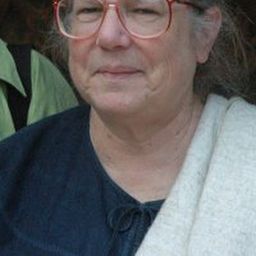14.30 Thai Museology and International Standards of Heritage Management
Conflicts may arise when international standards of museological practice are applied in heritage preservation at the local level, engendering unique responses arising out of the cultural matrix. Locally developed museography may be an expression of concepts fundamentally linked to traditional methods of cultural transmission. The challenge is to discover common goals and negotiate common processes. In mainland Southeast Asia questions arise when addressing the issue of material conservation; the how is often a source of conflict. Buddhist concepts of impermanence resonate with climatic conditions that do not support long-term preservation of material artifacts. This encourages active cultural production in fields ranging from literature to architecture, contributing to the transmission and evolution of culture. Questions arise: What should we preserve? How do we preserve them? How did we preserve them in the past? Can we afford to preserve them according to international environmental standards?
Materiality is only one issue. Another is preservation of meaning and its communication in order to allow for continuity through participation in cultural space. Communication is enriched by objective textual, photographic and digital formats as well as academic research; however, ethical issues arise when traditional processes are by-passed. The role of the acharn or teacher, defined in the local community as a person who has true and specialized knowledge with a vocation of preservation and communication; is often challenged by the professional scholar working in the educational and/or institutional system. This has led to the rise of so-called “local wisdom museums” in contrast to state or school “museums”; the first created and supported by the village or temple acharn and the second by official organizations and academic specialists. This said, it is now common for those professional specialists to search out and learn from the local acharn. In turn, they are also able to share their academic knowledge, leading to improved techniques of heritage preservation. Leadership in this role is essential.
The contributions of the Mae Fah Luang Art and Cultural Park (Rai Mae Fah Luang) to this process in Chiang Rai, Thailand will be highlighted in this paper. A member of the Asia Europe Museum Network and participant in the online project Virtual Collection of Masterpieces as well as a member of the Chiang Rai Museum Association, its commitment to a local, “Thai” museology informed by international standards has offered many opportunities for fruitful cooperation on the local level, in particular, involvement in development of temple museums. Because monks are from the community and temples are managed by members of the community in which they are located; they have become a respected source of reference and information, integrating knowledge into methodologies relating to local heritage preservation. Linking traditional and modern, academically informed, process promotes an exploration of relations and goals. In this way, heritage preservation can be defined by consensus, based in a cultural code of ethics that is inclusive. Evaluation of the validity of these forms requires an examination of the ethical foundation of culturally determined process with respect to issues of heritage preservation.
This paper will detail structural, descriptive, experiential and linguistic components of local museology. It will describe how they create a process that can be linked to the basic function of heritage management in the global context, identifying common ground and reconciling differences. The paper will explore the societal implications, ethics and transferability of these concepts, with an eye to increased feelings of ownership and more participation.
